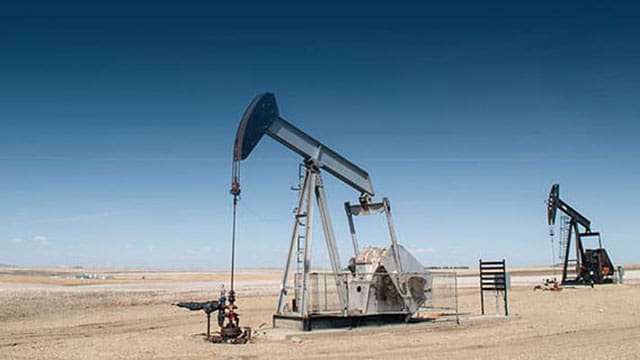Oil provides a cleaner alternative to coal and will help cut global carbon emissions

For interview requests, click here
The debate over whether Canada should phase out fossil fuels to combat climate change has sparked intense discussion. However, according to James Warren, adjunct professor of environmental sociology at the University of Regina, the answer is no.
In a recent paper for the Johnson-Shoyama School of Public Policy, a collaboration between his university and the University of Saskatchewan, Warren argues that “maximizing Canadian oil production and exports over the medium term could help reduce CO2 emissions for the long term.”
Warren acknowledges that this idea may sound like a “drink your way to sobriety” solution, but he makes a compelling case by pointing to Canada’s oil reserves and a Scandinavian example.
Decades ago, Norway adopted an approach inspired by Alberta’s 1970s Heritage Fund, setting aside a portion of its government’s petroleum revenues for investment. Unlike Alberta, Norway stuck with the strategy. Today, these investments are funding clean energy projects and incentives for purchasing electric vehicles. Norway’s two largest oil companies, Aker BP and Equinor ASA, have committed US$19 billion to develop fields in the North and Norwegian seas. They argue this production is essential to funding their country’s green transition.
 |
| Recommended |
| A silver lining for Canada in global warming?
|
| Emissions cap is the policy oil giants fear but Canadians need
|
| Carbon pricing is finally hitting the political wall. So what comes next?
|
Warren argues the same could be true for Canada. Since 2010, Canada’s oil exports have contributed an average of 4.7 per cent of our national GDP. While significant, this figure pales compared to what could have been achieved. Warren estimates that if the Trans Mountain, Northern Gateway, and Energy East pipelines had been operational at full capacity from 2015 to 2022, Canada would have gained $292 billion in additional export revenues. He attributes the shortfall to excessive regulations rather than reduced demand and argues that this must change.
Warren points out that Southeast Asia, in particular, continues to rely heavily on coal-fired power as part of its industrialization, with coal being twice as carbon-intensive as natural gas. If the goal is to lower global emissions, Canadian oil and natural gas exports offer a less carbon-intensive alternative. The situation becomes more urgent considering that China’s greenhouse gas emissions have more than quadrupled since 1990, while U.S. emissions have dropped over the same period.
China now accounts for 30 per cent of global emissions, while the U.S. is responsible for just 11 per cent. In 2023, China built 95 per cent of the world’s new coal-fired power plants, and despite aiming for carbon neutrality by 2060 (a decade later than the rest of the world), it continues to be the largest emitter.
Meanwhile, Canada contributes just 1.4 per cent of global GHGs, ranking 10th worldwide and 15th per capita. Given Canada’s resource-based economy and cold climate, this is an impressively low figure. This statistic also highlights a stark reality: if Canada ceased all activity – if every human and animal perished, all industry stopped, and every furnace and vehicle ceased to operate – 98.6 per cent of global emissions would remain. Warren asks: Why should Canada jeopardize its energy sector and the industries it supports for such a negligible impact on global emissions?
Historically, climate fluctuations are not unprecedented. The Medieval Warming Period, from 750 to 1350 AD, brought temperatures in Europe and North America that were higher than today by some estimates. This warming period saw agricultural productivity rise, populations grow, and new cities emerge. Climate history reminds us that warming periods are not new and can bring opportunities alongside challenges.
If the world warms again, Canada could be a big winner. A 2018 study by Chinese and Canadian academics published in Nature suggested that warming could shift agricultural zones northward, adding 3.1 million square kilometres of farmland in Canada by 2099.
Even if warming brings damaging weather, it does not follow that energy production should decline. More resilient infrastructure would be needed to address such challenges, and a robust economy fueled by energy production is essential to fund these developments. Solar, wind, and geothermal energy, while important, have limitations, particularly in addressing the entire energy needs of modern societies.
Whether temperatures are rising or not, Canada must continue to utilize its abundant energy resources. Wealth provides shelter from life’s storms, and the same is true for the planet’s storms.
Canada’s resources are a blessing that should not be held back by dubious arguments.
Lee Harding is a Research Fellow with the Frontier Centre for Public Policy.
Explore more on Canadian economy, Climate change, Energy security
Troy Media is committed to empowering Canadian community news outlets by providing independent, insightful analysis and commentary. Our mission is to support local media in building an informed and engaged public by delivering reliable content that strengthens community connections, enriches national conversations, and helps Canadians learn from and understand each other better.
